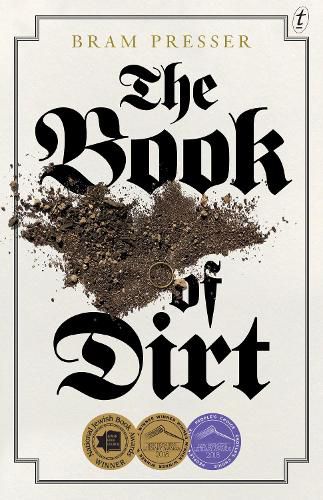Readings Newsletter
Become a Readings Member to make your shopping experience even easier.
Sign in or sign up for free!
You’re not far away from qualifying for FREE standard shipping within Australia
You’ve qualified for FREE standard shipping within Australia
The cart is loading…






An extraordinary and absorbing novelisation of one family’s tale of Holocaust survival and a grandson’s unrelenting dedication to ensuring his ancestor’s stories will never be forgotten, is now available in a smaller competitively priced format.
They chose not to speak and now they are gone…What’s left to fill the silence is no longer theirs. This is my story, woven from the threads of rumour and legend.
Jakub Rand flees his village for Prague, only to find himself trapped by the Nazi occupation. Deported to the Theresienstadt concentration camp, he is forced to sort through Jewish books for a so-called Museum of the Extinct Race. Hidden among the rare texts is a tattered prayer book, hollow inside, containing a small pile of dirt.
Back in the city, Frantiska Roubickova picks over the embers of her failed marriage, despairing of her conversion to Judaism. When the Nazis summon her two eldest daughters for transport, she must sacrifice everything to save the girls from certain death.
Decades later, Bram Presser embarks on a quest to find the truth behind the stories his family built around these remarkable survivors.
The Book of Dirt is a completely original novel about love, family secrets, and Jewish myths. And it is a heart-warming story about a grandson’s devotion to the power of storytelling and his family’s legacy.
$9.00 standard shipping within Australia
FREE standard shipping within Australia for orders over $100.00
Express & International shipping calculated at checkout
An extraordinary and absorbing novelisation of one family’s tale of Holocaust survival and a grandson’s unrelenting dedication to ensuring his ancestor’s stories will never be forgotten, is now available in a smaller competitively priced format.
They chose not to speak and now they are gone…What’s left to fill the silence is no longer theirs. This is my story, woven from the threads of rumour and legend.
Jakub Rand flees his village for Prague, only to find himself trapped by the Nazi occupation. Deported to the Theresienstadt concentration camp, he is forced to sort through Jewish books for a so-called Museum of the Extinct Race. Hidden among the rare texts is a tattered prayer book, hollow inside, containing a small pile of dirt.
Back in the city, Frantiska Roubickova picks over the embers of her failed marriage, despairing of her conversion to Judaism. When the Nazis summon her two eldest daughters for transport, she must sacrifice everything to save the girls from certain death.
Decades later, Bram Presser embarks on a quest to find the truth behind the stories his family built around these remarkable survivors.
The Book of Dirt is a completely original novel about love, family secrets, and Jewish myths. And it is a heart-warming story about a grandson’s devotion to the power of storytelling and his family’s legacy.
The opening chapter of Bram Presser’s debut novel about the Holocaust and how to make sense of it begins with some caution. Caution that could really apply to all literature of trauma. ‘This is a book of memories, some my own, some acquired, and some, I suppose imagined. It begins with a warning: almost everyone you care about in this book is dead.’
Armed with a complex cast who fictionalise the gaps in memory that have forever been erased, Presser follows his own cautionary edict. The bulk of the novel seeks to understand his grandfather, Jakub Rand, a victim of the death march to Sachenhausen in April 1945. Prior to this, Rand had been forced to work in the Museum of the Extinct Race in Nazi Germany.
Told through prose, myths, letters, emails and photographs, these forgotten lives gain humanity and memory through Presser’s work. Works such as this give us the opportunity to grapple with complex questions of forgotten history, research and belonging. It is difficult to convey the breadth and nuance of this extraordinary work. It is a book about how history is made – and about who is allowed the privilege to remake it. There are echoes here of Sebald’s biting honesty and Chabon’s long and rewarding vignettes. An absolute pleasure to read.
See what the Readings’ team have to say on the blog, discover related events and podcast episodes.